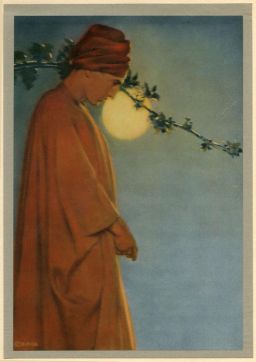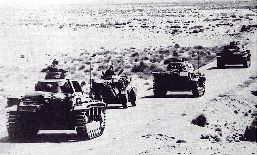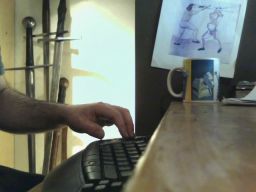The 33% Mark: When it’s OK to Stop Drafting Go Back and Edit

When you’re writing that first draft, standard advice is: Don’t go back to edit!
Make like Omar Khayyám:
The Moving Finger writes; and, having writ,
Moves on: nor all thy Piety nor Wit
Shall lure it back to cancel half a Line,
Nor all thy Tears wash out a Word of it.
Or if you prefer, Guderian:
Ticket to the last station.
Yes, the ideal first draft is a blitzkrieg: rampage onward with the story, ignore pockets of resistance, you can catch them on the second draft.
However, you are neither a medieval Persian ruminating on life, nor a Panzer general. For all we like to skin it with the aesthetic or the macho, writing is its own activity. The truth, so I’ve learned, is more complex.

Let’s be clear about why going back and editing is usually a Bad Idea… why it shouldn’t be your default activity when you sit down to write. (By editing, I mean everything from polishing prose — a novice obsession and displacement activity — through to actual rewriting passages.)
Here’s why:
Your story isn’t stable until it’s done.
Chapter 10 may actually kill Chapter 2.
You may also need to go back to change or add something in order to support the ending. For example, the maid’s boyfriend is the gardener responsible for the formal garden which is perfect for the final confrontation, and he also keeps Checkov’s gun in his shed… and you discovered this as you wrote the final chapter, meaning you’re going to take an axe to the existing prose.
Oh, and there’s no point in going back and making the changes as you discover them, because there may be more in the pipeline!
So, tinkering risks wasting time and emotion on passages you will subsequently cut or dramatically modify.
Also, tinkering is easier with a finished story. Only once you reach the end will you truly know the characters, the themes, and the story world. Your second draft will bulk out and refine the prose, bringing out character conflicts and deploying imagery and incident to illuminate both them and the theme. In other words, a completed story makes for better writing and more of it.
Thus Omar Guderian is generally correct(*):
Be the literary tank that trundles, and having trundles moves on.
Except, I like to go back and rewrite when I hit the 33% mark.

I’m not the only writer does this. We get to the point where we’re running out of steam and we realise something extra is needed. We stop, re-outline or at least reconsider the story, then go back and do substantial rewrites (but not prose polishing!) . This happens to me so routinely, I now consider it part of my process.
It’s a good way of testing whether an element — a “voice”, a character, a relationship, a setting… — actually works without having to worry about plot. It’s also an efficient way of creating what you have to establish anyway. For example, if a castle features throughout, you might as well go back and describe it in Chapter 1 rather than in your notes.
Perhaps most importantly, it’s psychologically easier to immerse yourself in the unfolding tale if the first part actually exists in some coherent form… put it down to confidence or the way creativity works.
Once you’ve gotten further than 33%, the balance shifts. You already have momentum, know your story, believe in your story world. That castle you want to add — or change — means redoing a lot of scenes and losing all momentum. And, of course, it all might change by the end.
So after 33%, too late, keep going! Drink more coffee! Type your ticket to the last station in your story.
M Harold Page is the Scottish author of The Wreck of the Marissa (Book 1 of the Eternal Dome of the Unknowable Series), an old-school space adventure yarn about a retired mercenary-turned-archaeologist dealing with “local difficulties” as he pursues his quest across the galaxy. His other titles include Swords vs Tanks (Charles Stross: “Holy ****!”) and Storyteller Tools: Outline from vision to finished novel without losing the magic. (Ken MacLeod: “…very useful in getting from ideas etc to plot and story.” Hannu Rajaniemi: “…find myself to coming back to [this] book in the early stages.”)